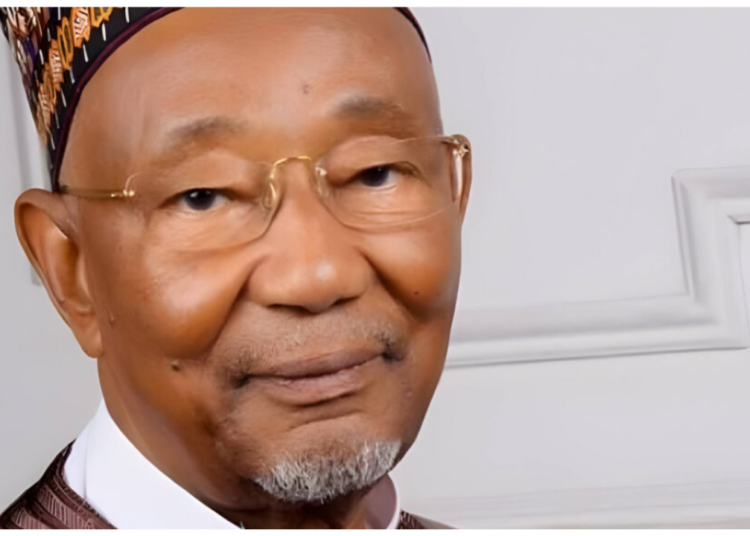Justice Nyang Ekwo of a Federal High Court sitting in Abuja has dismissed a suit filed by Senator Adamu Bulkachuwa, seeking to stop the Independent Corrupt Practices and other related offences Commission (ICPC) from investigating him over the comment he made during the valedictory session of the 9th National Assembly.
The court in its judgement said the suit lacked merit and ought to be dismissed.
In June, during the 9th senate valedictory session, the former senator who failed to return to the 10th Senate said he often “encroached on” his wife’s space while she was in office.
But Ahmad Lawan, the former Senate president who presided over the session, interrupted the senator before he spoke any further.
His wife, Zainab, was a former president of the Court of Appeal.
Shortly after the comment and outrage by Nigerians, the ICPC began an investigation and invited the former senator for questioning.
Bulkachuwa was scheduled to appear at the ICPC office on July 6 but he filed a suit to stop the invitation.
In the suit marked FHC/ABJ/CS/895/2023, Bulkachuwa argued that he was protected by constitutional immunity as a senator when he made the comment, which he said, was misinterpreted.
In his supporting affidavit, he explained that as a serving senator, he was, by law, immune to arrest or detention over any conduct, action or speech he made on the floor of the senate.
In his judgement, Justice Ekwo dismissed Bulkachuwa’s claim of legislative immunity.
The judge held that Bulkachuwa’s statement amounts to a “confessional” one and is not covered by Section 39(1) of the 1999 Constitution.
“In a formal setting like that plenary session or committee proceedings of the senate, it is not expected that a person who is privileged to voice any expression will utter words or express opinion or impart ideas or give information that cannot be defended under the constitution,” the judge said.
“Upon studying the provision of Section 39 (1) of the 1999 Constitution (as amended), it is my opinion that the words uttered by the plaintiff on the floor of the senate on Saturday, 10th June 2023 was a confession of doing an act that is prohibited by law.
“When a person confesses that he influenced a judicial officer to help his friends and colleagues, such a person has gone beyond the limit of freedom of speech that is reasonably covered and protected by the provision of Section 39 (1) of the 1999 Constitution (as amended).”
We’ve got the edge. Get real-time reports, breaking scoops, and exclusive angles delivered straight to your phone. Don’t settle for stale news. Join LEADERSHIP NEWS on WhatsApp for 24/7 updates →
Join Our WhatsApp Channel










